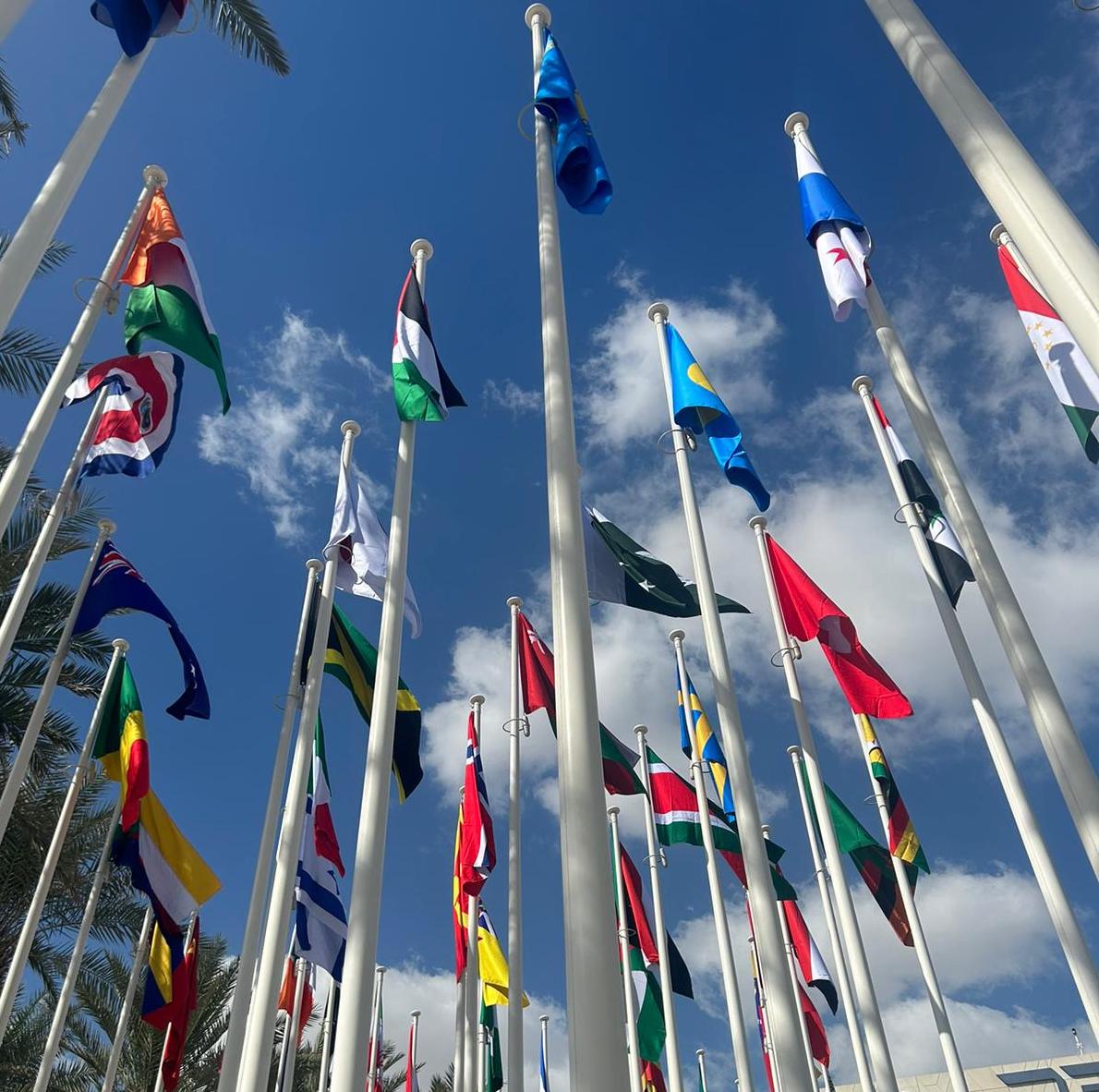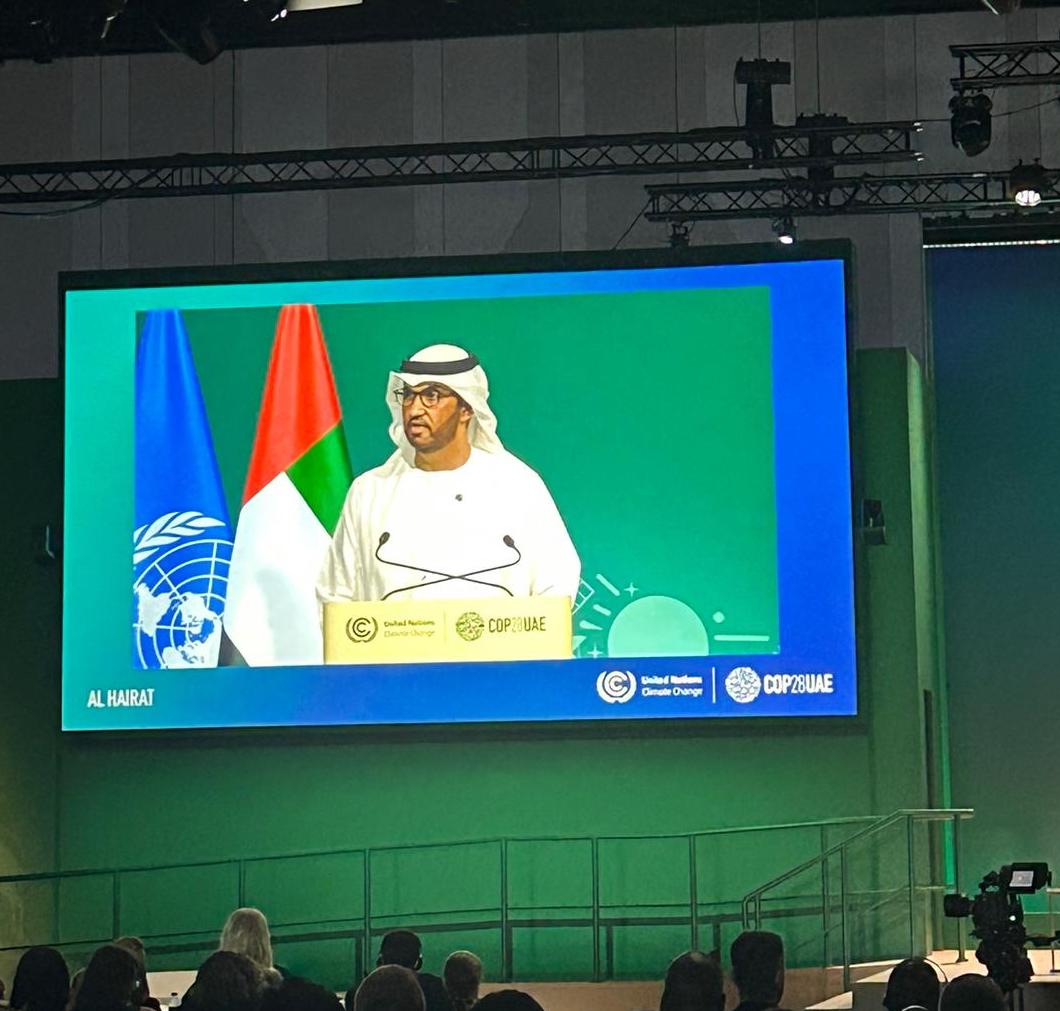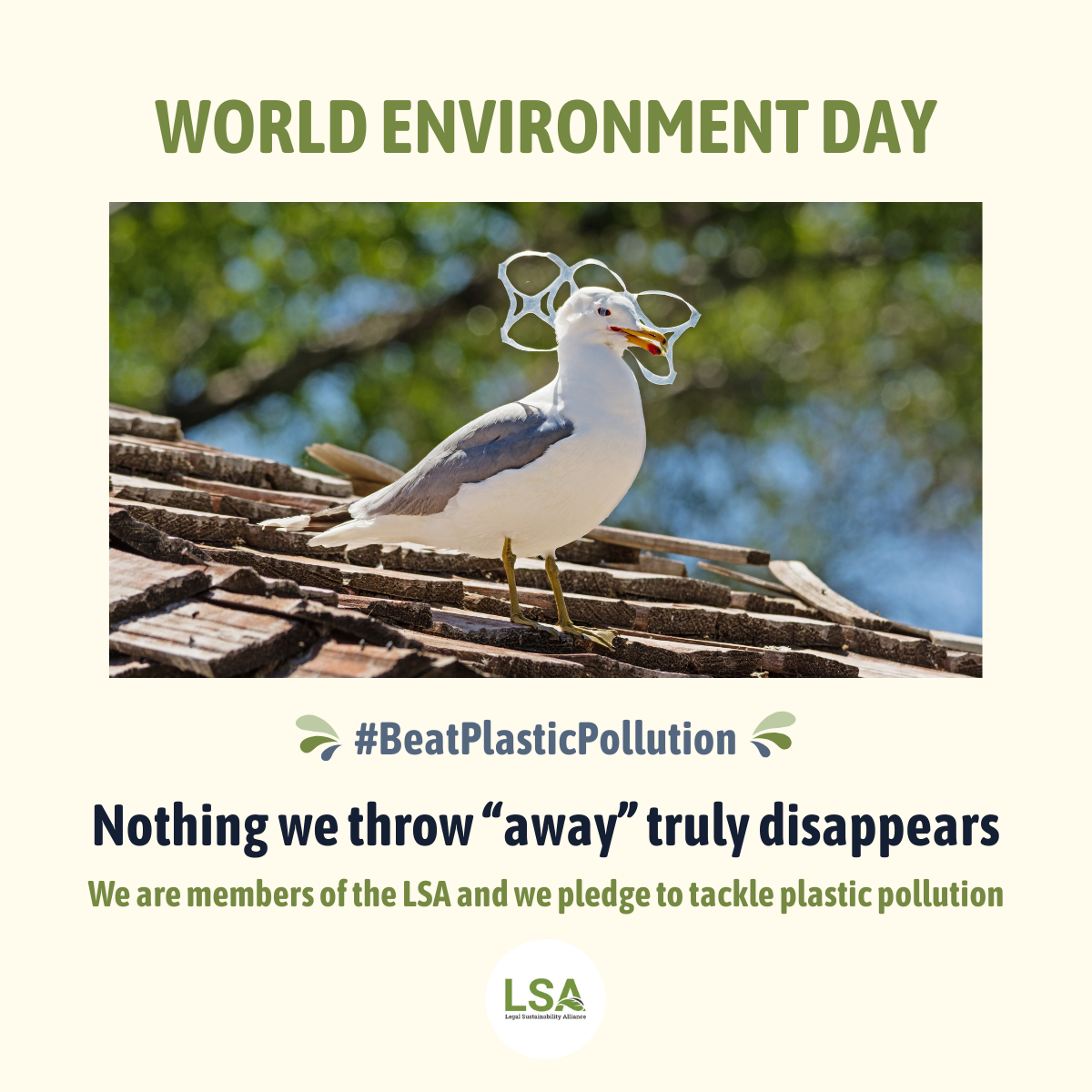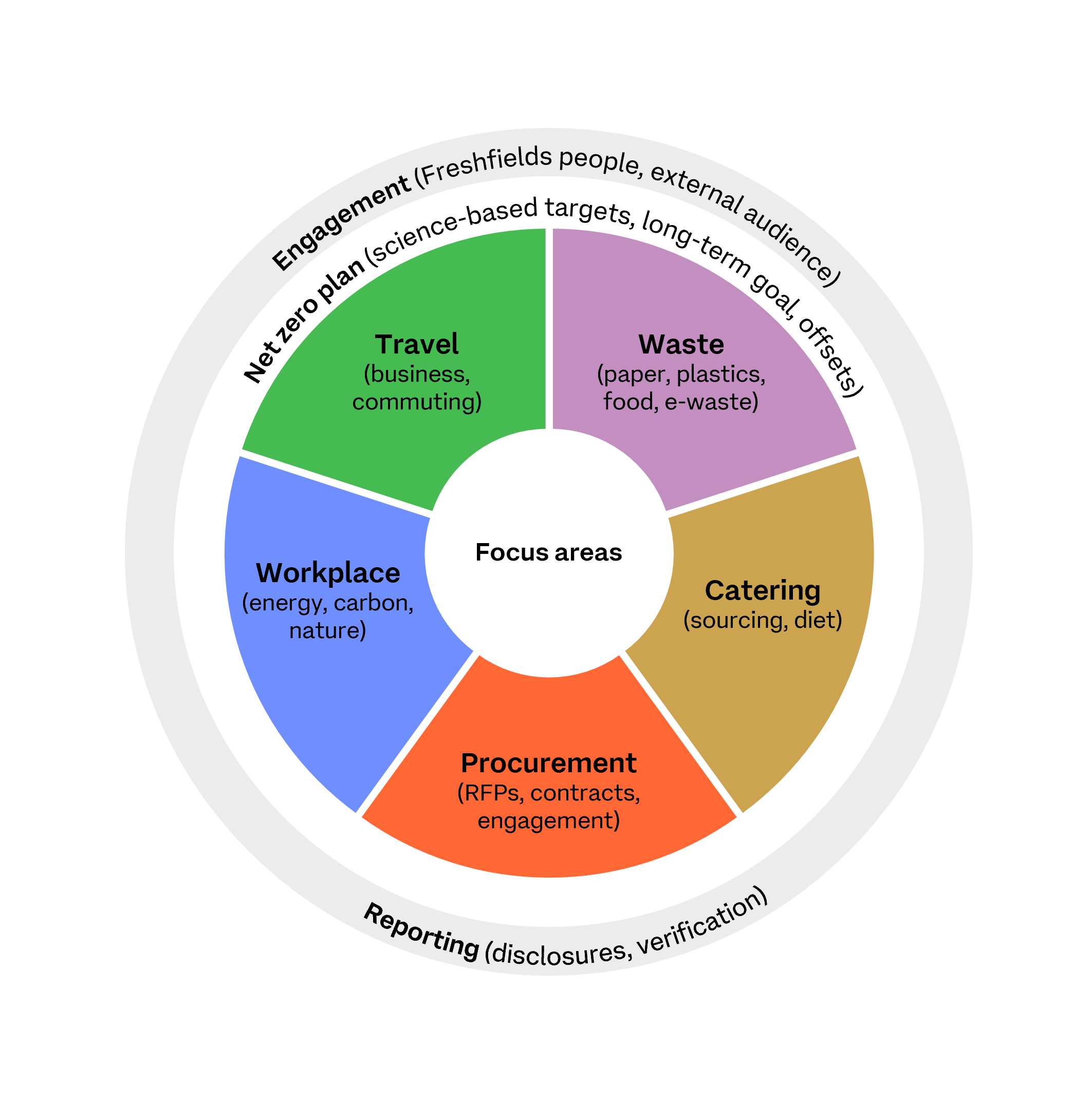We are delighted that Sarah Hill-Smith, associate at Clyde & Co, has offered to share her insights from the Blue Zone at COP28 in Dubai to give us a flavour of the atmosphere and progress. Sarah is working pro bono with NGO Legal Response International.
The international negotiations under the United Nations Framework Convention on Climate Change (UNFCCC) are known as the Conferences of Parties (COPs).
 COPs are amongst the most complex multilateral law and policy making processes in existence and LRI seeks to create a more level playing field by offering free legal advice and support to climate vulnerable and poorer nations during climate negotiations.
COPs are amongst the most complex multilateral law and policy making processes in existence and LRI seeks to create a more level playing field by offering free legal advice and support to climate vulnerable and poorer nations during climate negotiations.
Wealthy developed nations send larger delegations of hundreds of negotiators who are experts on specific agenda items, meaning that their interests are very well represented across the negotiations. Often, poorer and developing countries (which are typically those most vulnerable to the impacts of climate change) may not be able to afford this presence, and so send a smaller group of negotiators who cannot physically be in every single room, meaning their interests are less represented. As such, like-minded states will often get together and strengthen their negotiating position by forming negotiating blocs with and an aligned view, adding weight to their negotiating position. Examples include the Alliance of Small Island States (AOSIS), G77+ China and the African Group.
LRI, an official observer organisation to the UNFCCC, works with delegates from individual countries as well as the wider negotiating blocs. Whilst Sarah can’t take part in the negotiations on behalf of these states, she can be in the room as an official observer. She might find herself helping to research or interpret points of climate law, policy, diplomacy or procedure for delegates. She might be helping to unpick interpretations of draft text or dealing with ad hoc queries from delegates, such as looking into the constitution of one of the bodies under the UNFCCC and advising on whether an appointment to that body was legal, which happens to be what occupied her on Day 1.
 Working with a team of remote volunteer researchers, LRI also have capability to like help review and draft policy or review policy wordings, and when COP is not running, the organisation helps delegations and countries with capacity building.
Working with a team of remote volunteer researchers, LRI also have capability to like help review and draft policy or review policy wordings, and when COP is not running, the organisation helps delegations and countries with capacity building.
After a busy Day 1 at the conference, we had a quick debrief with Sarah, notes below.
We would recommend you also follow Sarah on LinkedIn, where she is posting fascinating updates, which we will also be sharing on the LSA’s page.
You were at COP26 – does this COP seem different?
The scale of the venue and the wider conference is enormous. The venue is swanky and impressive – like most things in Dubai! There are also a few more lawyers on the ground than there were at COP26, which is the last conference I went to with LRI in 2021. The Net Zero Lawyers Alliance is here, and we have been we’ve been having briefing calls with some of the NZLA to align on messaging, which is positive. There are also more events focussed on the role of lawyers as agents and facilitators in driving the energy transition.
Are you feeling hopeful after Day 1?
There has been a real success story with the decision being taken on day 1 to operationalise the Loss and Damage fund. This is hugely important, particularly for developing countries, but there are some residual doubts about the decision, for example about the fact that the fund will be housed in the World Bank, which is seen by many developing countries as a US-based institution, which may be skewed towards US geopolitical interests. There were also calls for the Fund to operate in alignment with human rights and inclusivity.
Huge thanks to Sarah for talking to us and allowing us to use her photos.



